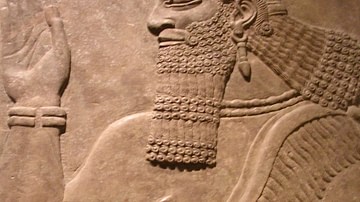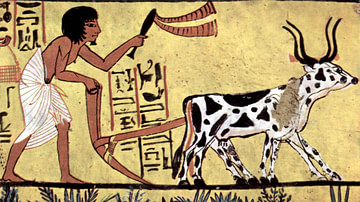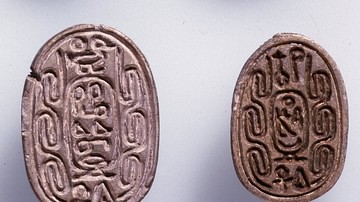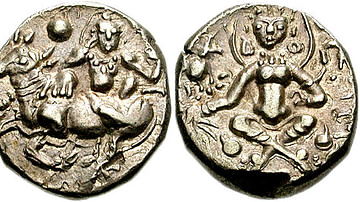Search
Did you mean: Tiye?
Search Results

Definition
Golden Age of Piracy
The Golden Age of Piracy (1690-1730) refers to a period when robbery on the high seas and at colonial ports reached an unprecedented level. Although not all historians agree on the precise time frame, it is generally applied to those pirates...

Definition
Neo-Assyrian Empire
The Neo-Assyrian Empire (912-612 BCE) was the final stage of the Assyrian Empire, stretching throughout Mesopotamia, the Levant, Egypt, Anatolia, and into parts of Persia and Arabia. Beginning with the reign of Adad Nirari II (912-891 BCE...

Article
The Origin & History of the BCE/CE Dating System
The BCE/CE dating system was first used in the 17th century and has been used since in scholarly publications read by people of all faiths and cultures in an effort to be inclusive. This system is also more accurate in that it makes no claim...

Article
Daily Life in Ancient Egypt
The popular view of life in ancient Egypt is often that it was a death-obsessed culture in which powerful pharaohs forced the people to labor at constructing pyramids and temples and, at an unspecified time, enslaved the Hebrews for this...

Video
Why We've Gotten 'Custer's Last Stand' Wrong for Nearly 150 Years
Sometimes to get remembered in history, you need a great publicist. This weekend marks the 147th anniversary of the Battle of Little Bighorn—also known as ‘Custer’s Last Stand’—a chapter in U.S. history that some historians are arguing needs...

Definition
Stone Age
From the dawn of our species to the present day, stone-made artefacts are the dominant form of material remains that have survived to today concerning human technology. The term “Stone Age” was coined in the late 19th century CE by the Danish...

Article
Sources of History
History (from the Greek ἱστορία, meaning 'a learning or knowing by inquiry') can be broadly taken to indicate the past in general but is usually defined as the study of the past from the point at which there were written sources onwards...

Definition
Hyksos
The Hyksos were a Semitic people who gained a foothold in Egypt c. 1782 BCE at the city of Avaris in Lower Egypt, thus initiating the era known in Egyptian history as the Second Intermediate Period (c. 1782 - c. 1570 BCE). Their name, Heqau-khasut...

Definition
Gauda Kingdom
The Gauda Kingdom came into being in the late 6th century CE in eastern India, as a result of the political disintegration of the Gupta Empire (3rd-6th century CE). Its core areas were situated in what is now the state of Bengal in India...

Definition
Ancient Egyptian Architecture
Ancient Egyptian architecture is often associated closely with the pyramids of Giza but was actually quite diverse, taking a number of forms in the construction of administrative buildings, temples, tombs, palaces, and the private homes of...